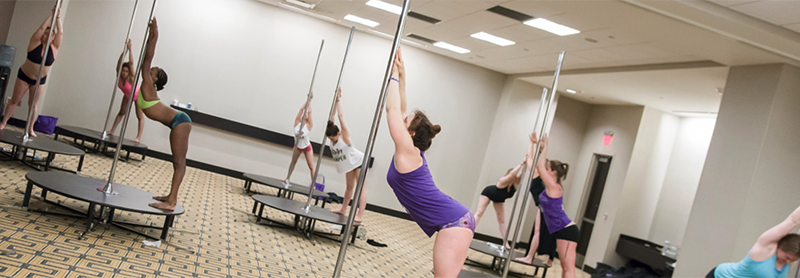There are plenty of things to consider when starting your own pole studio or becoming…

How to Protect Your Intellectual Property
What is Intellectual property?
Intellectual property is what makes you and your business unique. This could be your visual or movement arts, your methods for teaching, how you structure classes, the products in your business, how you conduct your services or other. To be fully protected under law, it’s best to protect your intellectual property using the legal tools available. Be aware though, that even having appropriate legal tools to help protect your intellectual property does not guarantee that it won’t be infringed upon or stolen.
Why protect your intellectual property?
If you had a great idea, someone might want to steal that idea from you to try and pass it off as their own or even profit from it using your likeness. This person, business or other entity might be local to you and your business or be in another country.
Having someone else sell a product or service that is yours could cost you lost revenue and create confusion in your brand. What if someone purchased a “knock off” version of something you sell, and it broke or hurt them? While you wouldn’t be liable for direct damages in this case, the bad press could hurt you and your business.
How to protect your intellectual property?
Just because you have great ideas does not necessarily mean your intellectual property is automatically safe. You should take steps to protect your intellectual property.
First, identify what you have in your business that is unique. Then see where that uniqueness fits under these four major categories that are protect-able under U.S. law. Note that there are fees and legal processes involved in each category.
Other countries may have different laws and regulations, make sure to find the regulations that are applicable to you in your country:
- Patents provide inventors the exclusive rights to control the manufacturing, use and sale of their inventions which can be physical or digital. Currently, U.S. patent laws last twenty years from the time of the original application and you can use this guide from the U.S. Chamber of Commerce to learn how to apply for a patent. A patentable pole item might be a new pole or a new tool to clean the pole.
- Trademarks are words, phrases, logos, symbols or designs that are used to distinguish a product or company from one another. If you have not trademarked your business, it can be difficult to prove copyright infringement in a court of law. They can be registered with the U.S. Patent and Trademark Office. Many pole businesses have registered trademarks of their business name.
- Copyright is the exclusive and legal right of ownership for original intellectual and creative materials. Examples include literature, music, film and artistic works such as paintings, poems and sculptures. Copyright law does not protect against ideas, facts, systems or methods of operation. If you had a photo taken of you in a photoshoot, the person who took the photo—NOT the person in the photo—owns the copyright. All photos are automatically protected by copyright from the moment of creation and last for the life of the creator plus 70 years. If you take part in a photoshoot or hire a photographer, make sure to get a contract specifying the rights involved in the photos. Typically, if you hire a photographer, that work is considered “work for hire” and the person who hired the photographer is the copyright owner. You can also apply for copyright for your work at U.S. Copyright Office. Pole photographers should be very versed in this topic. If you are creating art for sale and selling on a public platform like Instagram or OnlyFans, make sure to read the detailed laws of the platform for who owns your materials. In some cases, material that you post online is now owned by the social media platform and they are able to reuse your image to sell their products/services.
- Trade secrets are pieces of information that are valuable to the creation of your product, process, or business that are not public. You can prevent others from disclosing this information with a non-disclosure or confidentiality agreement. In the pole industry, this may be a clause in a non-compete agreement or part of an employee or a contractor contract.
Please note, there is no such thing as an “international copyright” that will automatically protect a work throughout the world. Protection against unauthorized use in a particular country depends on the national laws of that country. The United States has copyright relations with most countries throughout the world, and as a result of these agreements, maintains reciprocal citizens’ copyrights. However, the United States does not have such copyright relationships with every country.
What to do if someone random has stolen your intellectual property?
As soon as you realize that your intellectual property has been stolen or used without permission, contact the person or company and ask them to stop. Sometimes that does work, other times, it does not.
When asking nicely doesn’t work, you need to get lawyers involved. The most common first step with lawyers is to issue a “Cease and Desist Letter.” This letter typically would specify what has intellectual property has been stolen, how you can prove it’s yours originally (usually through having a patent, trademark or copyright), the action you want them to take such as removing the item from their website, store, social media, etc. and how long the person/company has to comply with your request.
If your intellectual property is on the internet, you may also be able to use the Digital Millennium Copyright Act which allows you to send a similar cease and desist request to the web hosting provider or other service providers like Google to work around the violator. This is especially useful if the person/business does not respond to you.
If a cease and desist letter does not work and the person/company does not comply, then you will need to continue pursuing legal action with an intellectual property lawyer.
What to do if someone you know has stolen your intellectual property?
If someone you were working with stole your intellectual property such as if you hired a web developer to design a website for your pole tutorials, you should first review any contract you signed with that person especially for non-compete and non-disclosure clauses. If you did not sign a contract and if you do not have any registered trademarks or copyright on your information, then it will be more difficult to pursue damages.
Always have a contract. A contract may seem like a not very friendly thing to do, especially in a small industry with people you know and trust BUT a contract really is protection for everyone involved. Sometimes things change, people misunderstand intentions. Having a contract is for when things go wrong, so you know how to proceed in an equitable and pre-agreed way.
The “bottom line” about intellectual property
Everyone has something unique about their business. You may be able to patent, trademark or copyright those unique things as the first step to protecting your business. While the process to legally file for protection may be daunting and time-consuming, always take the time—and money—to protect your valuable business assets.
If what makes your business unique is not covered under a patent, trademark and/or copyright, at a minimum make sure you have a contract with the people who work with you that specify non-disclosure and potentially non-compete clauses. This will help specific what happens when things go wrong in your business relationship.



